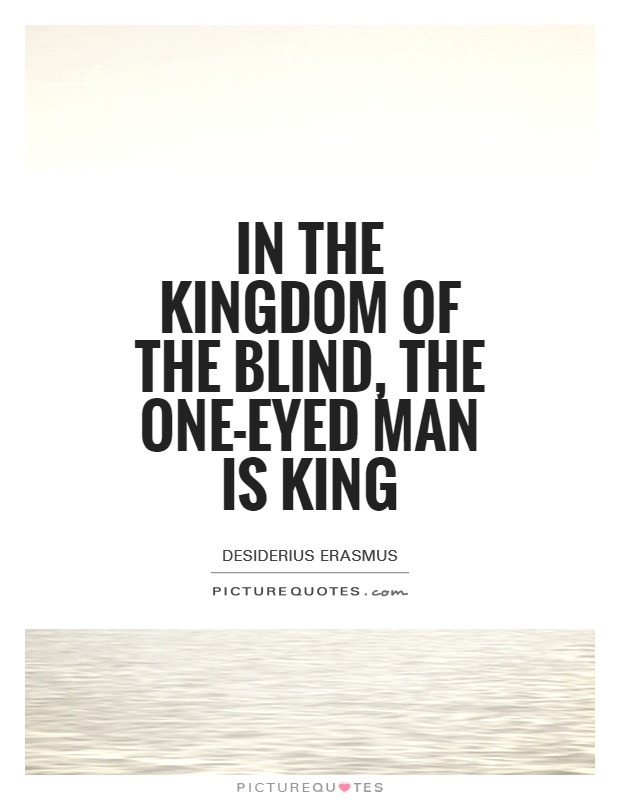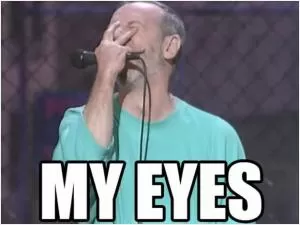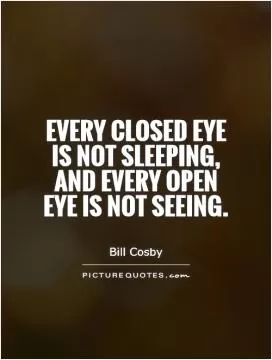In the kingdom of the blind, the one-eyed man is king

In the kingdom of the blind, the one-eyed man is king
The phrase "In the kingdom of the blind, the one-eyed man is king" is a proverb that has been attributed to the Dutch philosopher Desiderius Erasmus. This saying has been interpreted in various ways over the years, but at its core, it speaks to the idea that in a society where everyone is lacking in some way, the person with even a small advantage will be seen as superior.Erasmus was a humanist thinker who lived during the Renaissance period, a time of great intellectual and cultural growth in Europe. He was known for his critical thinking and his belief in the power of education and reason. In this context, the phrase can be seen as a commentary on the importance of knowledge and insight in a world that may be lacking in these qualities.
One interpretation of the proverb is that in a society where everyone is ignorant or lacking in understanding, the person with even a small amount of knowledge or insight will be able to rise to a position of power and influence. This can be seen as a call to value education and critical thinking, as these qualities can set individuals apart and allow them to excel in a world that may be lacking in these areas.
Another interpretation of the phrase is that it speaks to the idea of relative superiority. In a society where everyone is blind, the person with one eye may be seen as superior simply because they have something that others do not. This can be seen as a commentary on the nature of power and privilege, and how these qualities can be relative and dependent on the context in which they are viewed.
Overall, the phrase "In the kingdom of the blind, the one-eyed man is king" can be seen as a reflection of Erasmus's belief in the power of knowledge and insight, and a reminder of the importance of critical thinking and education in a world that may be lacking in these qualities.












 Friendship Quotes
Friendship Quotes Love Quotes
Love Quotes Life Quotes
Life Quotes Funny Quotes
Funny Quotes Motivational Quotes
Motivational Quotes Inspirational Quotes
Inspirational Quotes